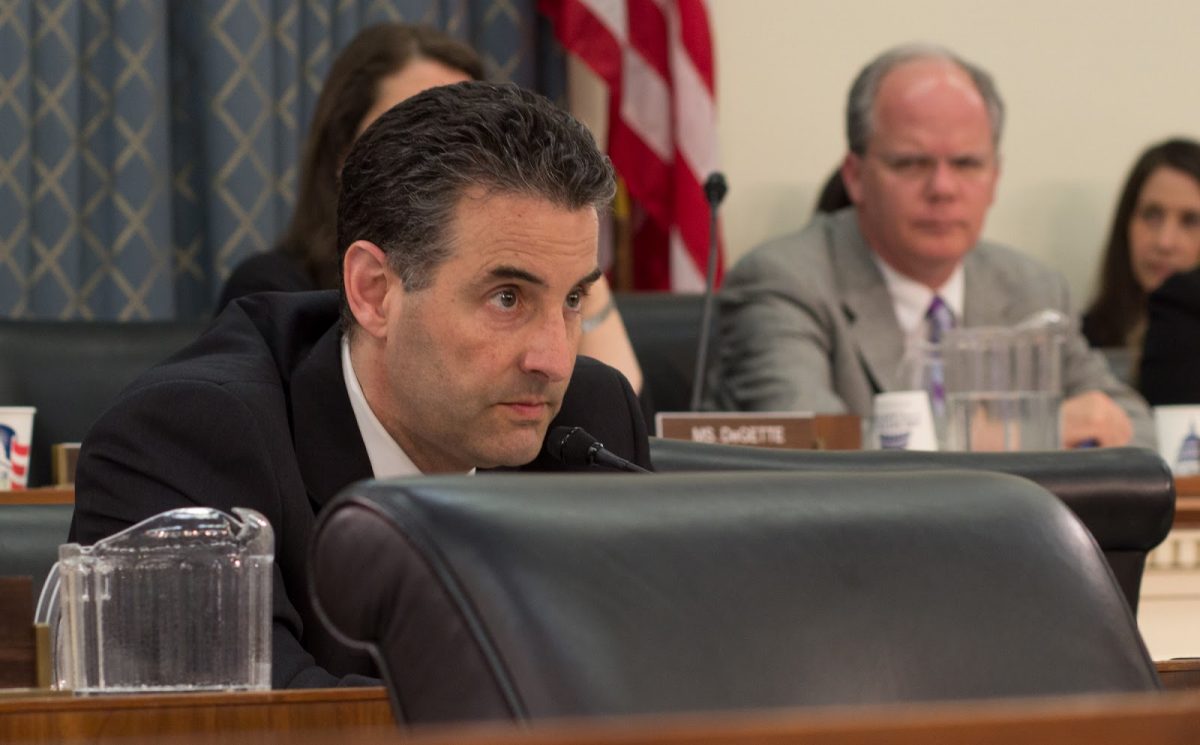WASHINGTON – Maryland Democratic Rep. John Sarbanes on Wednesday criticized insulin producers for their lack of transparency in setting prices.
“I do not buy the argument that the patient is going to be worse off, the consumer is going to be worse off, if we have complete transparency,” the Towson congressman said at a hearing by the House Energy and Commerce Committee’s oversight and reform subcommittee. “I think the lack of transparency is allowing for a lot of manipulation.”
Nearly 10 percent of the U.S. population has diabetes, according to the Centers for Disease Control and Prevention. Of those, around 10 million have chronic kidney failure and require a kidney transplant in addition to regular insulin treatment to stay alive.
But it’s hard to depend on insulin when the price of the drug for dependent patients is increasing every year, the committee’s chairwoman, Rep. Diana DeGette, D-Colorado, said in her opening statement.
One bottle of the brand of Insulin, Humalog, cost $35 in 2001. Today, it costs $275, said DeGette, whose daughter requires insulin every day.
Of the six executives who testified before the subcommittee, three said they also had family members or friends with diabetes and said they knew about the effects of the cost of insulin firsthand.
“Often our phone calls and visits turned to diabetes,” said Mike Mason, an executive of insulin-producer Eli Lilly and Company, about talks with four immediate family members.
“Over the years we focused on these conversations of how they were managing diabetes but within the last two or three years the conversations have changed,” he added. “We now spend more and more time talking about how much they pay out-of-pocket for insulin.”
Last week, the committee heard testimony from a diabetic patient who rationed her insulin to make it last longer because she couldn’t afford her next bottle. Also at that hearing, the committee explored the influence of pharmacy benefit managers, companies that negotiate prices for insulin with insurance companies and uninsured consumers.
The testimony led Sarbanes to question whether witnesses were optimistic that businesses could be transparent in their negotiations for the drug.
On Wednesday, Sarbanes asked why the general public does not have access to information about how the net price of the drug is often negotiated to a significantly higher cost for the patient through price benefit managers.
“Should it be a trade secret? is that the problem? Like proprietary?” Sarbanes asked one pharmacy benefit manager company executive.
“The reason I am able to get the discounts that I can from the manufacturer is because…,” Amy Bricker, senior vice president of Express Scripts, started.
The congressman cut her off: “It’s a secret.”
“Because it’s confidential,” Bricker responded.
“Yeah, because it’s a secret,” Sarbanes said.
Sarbanes then asked if the executives would support Congress taking steps to make the process transparent.
“We would support transparency along the entire chain,” responded Kathleen Tregoning, an executive of insulin manufacturer Sanofi. “That’s the important thing, is if we have transparency all along, from the list price all the way through to patients.”
Bricker said she would not support that kind of transparency because “it will hurt the consumer, congressman, because the price will be held high.”
The Maryland lawmaker condemned what he called “hocus pocus” negotiations going on behind closed doors, saying that the whole price-setting system for insulin is “screwed up.”
“They’ve managed to figure out a way to structure the system so they can be negotiating at a level that always protects, it appears to me, the profits of the companies and PBMs at the expense of the patients,” Sarbanes said.
Although no one responded to the congressmen’s claims, Mason said that his firm is open to change if it is initiated by Congress.
“We are open for transparency to help patients,” Mason said. “We are not defending the system. We are just explaining the system. We want reform, we want anything that provides better access to patients.”
The hearing came amidst a larger Democratic effort to work with the Trump administration to cut prescription drug costs.
“Together we must hold the president accountable to his campaign promises to ensure that he signs this legislation when it reaches his desk.” House Speaker Nancy Pelosi, D-California, said Tuesday in a speech to the American Hospital Association. “Every time I speak to him he says, ‘Yes, yes. We’ve got to lower the cost of prescription drugs.’ We want to enable him to do that.”

